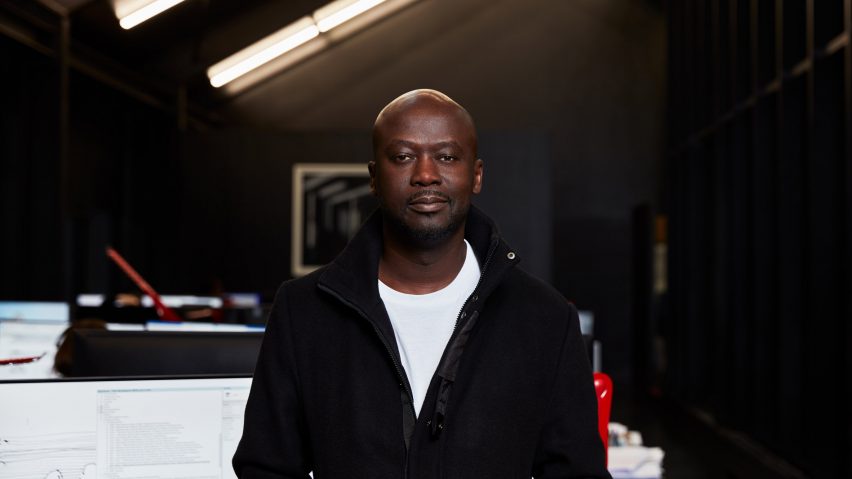British-Ghanian architect David Adjaye has been awarded Britain's Order of Merit, making him the fifth architect on the list, which also includes Norman Foster.
Adjaye was one of the last members to be chosen for the Order of Merit by the late Queen Elizabeth II in early September. He was admitted into it by King Charles III on 24 November, as part of the King's first appointments since becoming Sovereign of the Order.
The Order is given to "such persons, subject of our Crown, as may have rendered exceptionally meritorious service in our Crown services or towards the advancement of the arts, learning, literature, and science or such other exceptional service as we are fit to recognise", according to the Royal Family.
Adjaye, who is the founder of Adjaye Associates, is only the fifth architect to be given the honour since it was created in 1902. He follows Edwin Lutyens, Giles Gilbert Scott, Basil Spence and Foster, who became a member of the Order in 1997 and is the only other living architect to currently hold the title.
Also given the Order of Merit this year were nurse Elizabeth Anionwu, Baroness Floella Benjamin, professor Margaret MacMillan, geneticist Paul Nurse and biologist Venki Ramakrishnan.
While the Order of Merit does not carry a rank, members can add an "OM" after their name and are given a badge with an eight-pointed cross of red and blue enamel surmounted by the Imperial Crown. The front contains the words "For Merit," while the reverse features the Royal Cypher.
There are only 24 members of the Order of Merit at any one time.
This accolade is the latest in a series for Adjaye, who was awarded the inaugural Le Prix Charlotte Perriand by the Créateurs Design Association & Awards in February and received the RIBA Gold Medal in 2021 in a star-studded virtual ceremony.
The British High Commission to Ghana and the non-profit organisation Commonwealth War Graves, with whom Adjaye will work to "craft a new generation of memorials", congratulated the architect on Twitter.
Adjaye has recently unveiled plans for the National Cathedral of Ghana in Accra, though the project has been caught up in a funding dispute, and is also set to create a memorial to West African slaves in Barbados.
In 2017, he was named the world's most influential architect by Time magazine.

